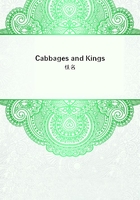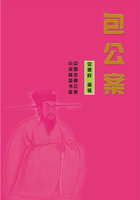You will ask me what they said. I do not know. Either the words were confused or the events that followed have blotted them from my brain. All I remember is that each of them seemed to be speaking of the Zulus and their fate and to be very anxious to refer further discussion of the matter to some one else. In short they seemed to talk under protest, or that was my impression, although Goza, the only person with whom I had any subsequent debate upon the subject, appeared to have gathered one that was different, though what it was I do not recall. The only words that remained clear to me must, I thought, have come from the spirit of Chaka, or rather from Zikali or one of his myrmidons assuming that character. They were uttered in a deep full voice, spiced with mockery, and received by the wizard with "Sibonga," or titles of praise, which I who am versed in Zulu history and idiom knew had only been given to the great king, and indeed since his death had become unlawful, not to be used. The words were--"What, Thing-that-should-never-have-been-born, do you think yourself a Thing-that-should-never-die, that you still sit beneath the moon and weave witchcrafts as of old? Often have I hunted for you in the Under-world who have an account to settle with you, as you have an account to settle with me. So, so, what does it matter since we must meet at last, even if you hide yourself at the back of the furthest star? Why do you bring me up to this place where I see some whom I would forget? Yes, they build bone on bone and taking the red earth, mould it into flesh and stand before me as last I saw them newly dead. Oh! your magic is good, Spell-weaver, and your hate is deep and your vengeance is keen. No, I have nothing to tell you to-day, who rule a greater people than the Zulus in another land. Who are these little men who sit before you? One of them has a look of Dingaan, my brother who slew me, yes, and wears his armlet. Is he the king? Answer not, for I do not care to know. Surely yonder withered thing is Sigananda. I know his eye and the Iziqu on his breast. Yes, I gave it to him after the great battle with Zweede in which he killed five men. Does he remember it, I wonder? Greeting, Sigananda; old as you are you have still twenty and one years to live, and than we will talk of the battle with Zweede. Let me begone, this place burns my spirit, and in it there is a stench of mortal blood. Farewell, O Conqueror!"
These were the words that I thought I heard Chaka say, though I daresay that I dreamt them. Indeed had it been otherwise, I mean had they really been spoken by Zikali, there would surely have been more in them, something that might have served his purpose, not mere talk which had all the inconsequence of a dream. Also no one else seemed to pay any particular attention to them, though this may have been because so many voices were sounding from different places at once, for as I have said, Zikali arranged his performance very well, as well as any medium could have done on a prepared stage in London.
In a moment, as though at a signal, the voices died away. Then other things happened. To begin with I felt very faint, as though all the strength were being taken out of me. Some queer fancy got a hold of me. I don't quite know what it was, but it had to do with the Bible story of Adam when he fell asleep and a rib was removed from him and made into a woman. I reflected that I felt as Adam must have done when he came out of his trance after this terrific operation, very weak and empty. Also, as it chanced, presently I saw Eve--or rather a woman. Looking at the fire in a kind of disembodied way, I perceived that dense smoke was rising from it, which smoke spread itself out like a fan. It thinned by degrees, and through the veil of smoke I perceived something else, namely, a woman very like one whom once I had known. There she stood, lightly clad enough, her fingers playing with the blue beads of her necklace, an inscrutable smile upon her face and her large eyes fixed on nothingness.
Oh! Heaven, I knew her, or rather thought I did at the moment, for now I am almost sure that it was Nombe dressed, or undressed, for the part. That knowledge came with reflection, but then I could have sworn, being deceived by the uncertain light, that the long dead Mameena stood before us as she had seemed to stand before me in the hut of Zikali, radiating a kind of supernatural life and beauty.
A little wind arose, shaking the dry leaves of the aloes in the kloof; l thought it whispered--_Hail, Mameena!_ Some of the older men, too, among them a few who had seen her die, in trembling voices murmured, "It is Mameena!" whereon Zikali scowled at them and they grew silent.
As for the figure it stood there patient and unmoved, like one who has all time at its disposal, playing with the blue beads. I heard them tinkle against each other, which proves that it was human, for how could a wraith cause beads to tinkle, although it is true that Christmas-story ghosts are said to clank their chains. Her eyes roved idly and without interest over the semi-circle of terrified men before her. Then by degrees they fixed themselves upon the tree behind which I was crouching, whereon Goza sank paralyzed to the ground. She contemplated this tree for a while that seemed to me interminable; it reminded me of a setter pointing game it winded but could not see, for her whole frame grew intent and alert. She ceased playing with the beads and stretched out her slender hand towards me. Her lips moved. She spoke in a sweet, slow voice, saying--"O Watcher-by-Night, is it thus you greet her to whom you have given strength to stand once more beneath the moon? Come hither and tell me, have you no kiss for one from whom you parted with a kiss?"
I heard. Without doubt the voice was the very voice of Mameena (so well had Nombe been instructed). Still I determined not to obey it, who would not be made a public laughing-stock for a second time in my life. Also I confess this jesting with the dead seemed to me somewhat unholy, and not on any account would I take a part in it.















